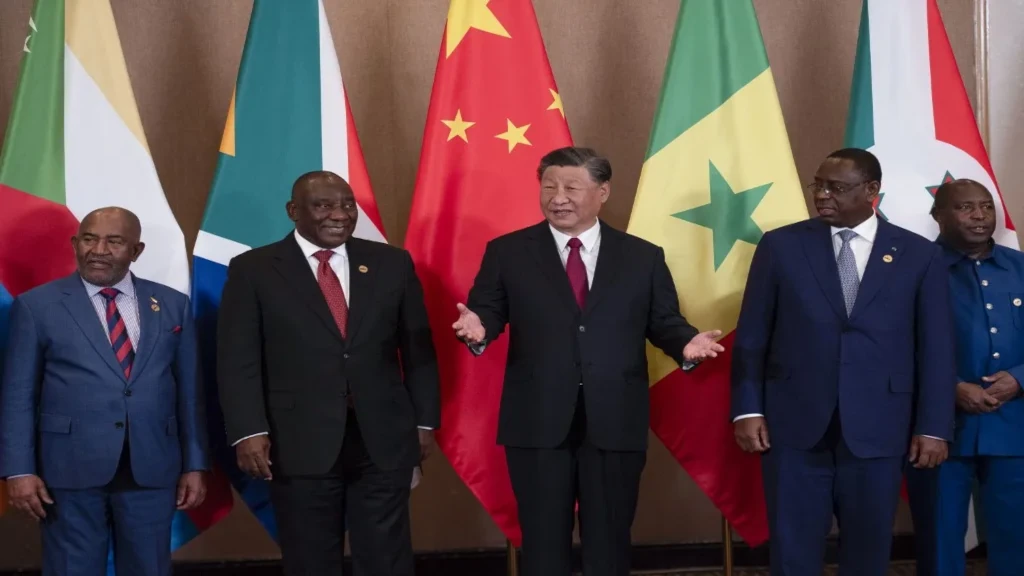The U.S. Space Force, U.S. European Command, and U.S. Africa Command activated their newest service component on Dec. 8, in an expansion of USSF’s growing reach into combatant commands.
“This is an important day in the history of the Space Force as we mature our organization and our partnerships to take on the challenges of the space domain,” Chief of Space Operations Gen. B. Chance Saltzman said in remarks at a ceremony held at Ramstein Air Base, Germany, where the component will be headquartered.
U.S. Space Forces Europe and Africa (SPACEFOREUR-AF), under the command of Space Force Col. Max Lantz, gives the USSF into its own organization in the vast combined area of U.S. European Command and U.S. Africa Command.
“We are activating the component because presence matters,” Lantz said.
Previously, U.S. military space capabilities in Europe and Africa, which Lantz already headed, were part of the air component, U.S. Air Forces in Europe-Air Forces Africa (USAFE-AFAFRICA), in a model that predated the Space Force as an independent service. Inside combatant commands, services provide their own components that the command can draw on. Now, the Space Force has its own organization.
The activation of Space Forces Europe and Africa is a “critical step” in USSF’s growth as its own service with its own voice in operations, Saltzman said.
“Space has become more and more central to joint operations,” he added. “We are better connected, more informed, more precise, and more lethal thanks to space.”

The official party for the U.S. Space Forces Europe & Africa activation ceremony stand at attention during the USSPACEFOREUR-AF activation and assumption of command, at Ramstein Air Base, Germany, Dec. 8, 2023. USSPACEFOREUR-AF will provide U.S. European Command and U.S. Africa Command a cadre of space experts who collaborate with NATO allies and partners to integrate space efforts into shared operations, activities and investments. (U.S. Air Force photo by Senior Airman Edgar Grimaldo
SPACEFOREUR-AF is now the fourth service component embedded in one of the U.S. military’s regional commands, joining U.S. Central Command, U.S. Indo-Pacific Command, and U.S. Forces Korea. Joint combatant commanders and Space Force leaders say the new organizations help better articulate what space capabilities are available and ensure they are taken into account and put to use.
“The joint force’s missions increasingly rely on space and the Space Force is committed to ensuring that the force has the space resources it needs to succeed,” Saltzman said. “That is particularly important here in the European and African theaters of operation. The Space Force is already very actively involved in supporting efforts in the region, with our support to Ukraine being most visible.”
The USSF is considering establishing components in other commands, possibly including U.S. Cyber Command, U.S. Special Operations Command, and U.S. Forces Japan.
“Space operations is our daily lives, our operations, our activities, and our investments,” Marine Corps Gen. Michael E. Langley, the head of U.S. Africa Command, said during the ceremony. “All the space-based assets [are] ensuring the joint force has the right information at the right time to fight and to win. SPACEFOREUR-AF will work with all other components to ensure that space planning and support is embedding in all of our operations.”
Like the rest of the Space Force, SPACEFOREUR-AF is a small organization. But throughout 2023, after the plans for SPACEFOREUR-AF were announced, senior U.S. military space leaders visited Europe to strengthen the U.S. military space alliances. On Dec. 1, the U.K. agreed to host a new advanced space tracking radar system along with Australia and the U.S.
The activation will “finally normalize how space forces are presented to the theaters—sound, structural changes,” Lantz said. “The component we’re standing up today will never be as small, under-ranked, or less resourced than at this very moment. Starting tomorrow, we will gain in strength, understanding, and resources in order to add value to EUCOM and AFRICOM. Every day we will get better.”

The new U.S. Space Forces in Europe-Space Forces Africa patch is displayed at Ramstein Air Base, Germany, Dec. 6, 2023. U.S. Air Force photo by Senior Airman Jared Lovett
Source: Space & Airforce Magazine, 8th December 2023
 afric-Invest
afric-Invest


